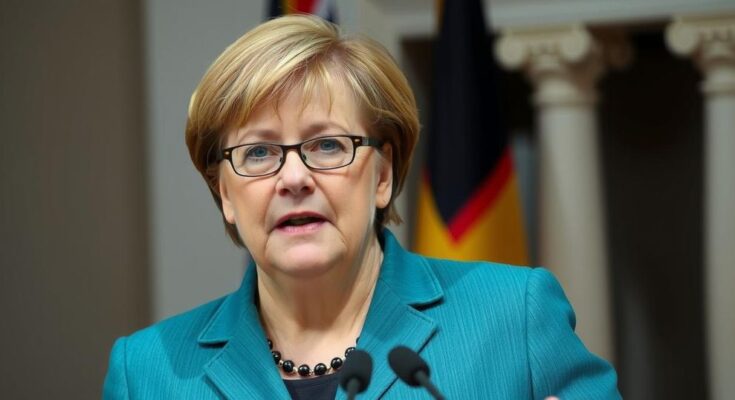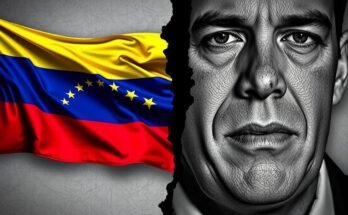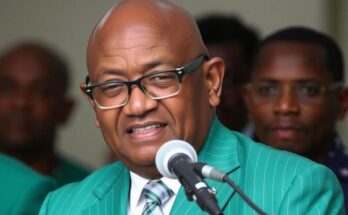German President Frank-Walter Steinmeier has dissolved parliament and set an early election date of February 23 following the coalition government’s collapse. He emphasized the need for political stability, called for a respectful and fair campaign, and warned against foreign influence as Germany faces crucial challenges, including economic instability and immigration debates. Chancellor Scholz will remain as caretaker until a new government is formed.
On Friday, German President Frank-Walter Steinmeier officially dissolved the parliament and announced that the early general election will take place on February 23. This announcement follows the recent collapse of Chancellor Olaf Scholz’s coalition government, which was marred by internal disputes surrounding strategies to rejuvenate the German economy. The tragic car-ramming incident at a Christmas market last week has also ignited intense discussions regarding security and immigration policies in Germany.
While confirming the election date, President Steinmeier underscored the necessity for “political stability” within the country. He urged candidates and political parties to engage in the electoral process with “respect and decency,” and insisted on a need for transparency and fairness during the campaign. He cautioned against the ramifications of “foreign influence,” particularly on social media platforms like X, owned by Elon Musk.
Further addressing the atmosphere leading up to the elections, President Steinmeier asserted that “Hatred and violence must have no place in this election campaign, nor denigration or intimidation… all this is poison for democracy.” He reminded political actors and the populace of the significant challenges that the future government will face. These include economic instability, international conflicts in the Middle East and Ukraine, as well as ongoing discussions related to immigration and climate change problems.
Until a new government is established, which may take several months, Chancellor Scholz will continue to serve as the caretaker leader.
This news becomes pertinent in the context of recent political instability in Germany, particularly surrounding the government led by Chancellor Olaf Scholz. Scholz’s coalition faced internal conflicts primarily about economic recovery measures, ultimately leading to its breakdown. Additionally, the heightened discourse on security and immigration underscores the societal concerns that have arisen following a tragic incident, reflecting broader challenges that the next administration will need to address.
In conclusion, the dissolution of the German parliament and the announcement of early elections on February 23 signify a crucial political juncture for Germany. With President Steinmeier stressing the importance of respectful campaigning and the avoidance of divisive rhetoric, all eyes will be on how the forthcoming candidates address pressing issues, including economic challenges, security, and immigration. The situation underscores the need for effective governance amidst significant national and international challenges.
Original Source: www.kyivpost.com




